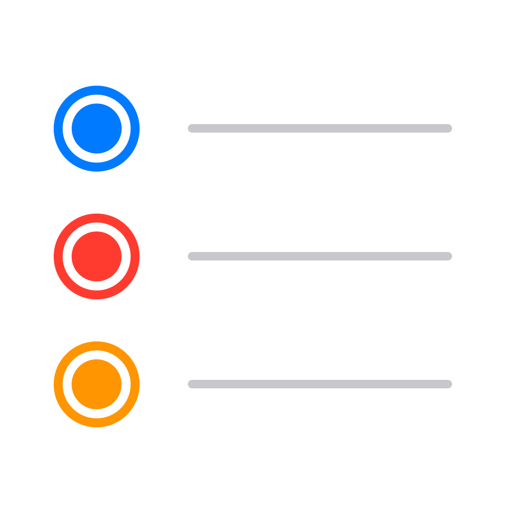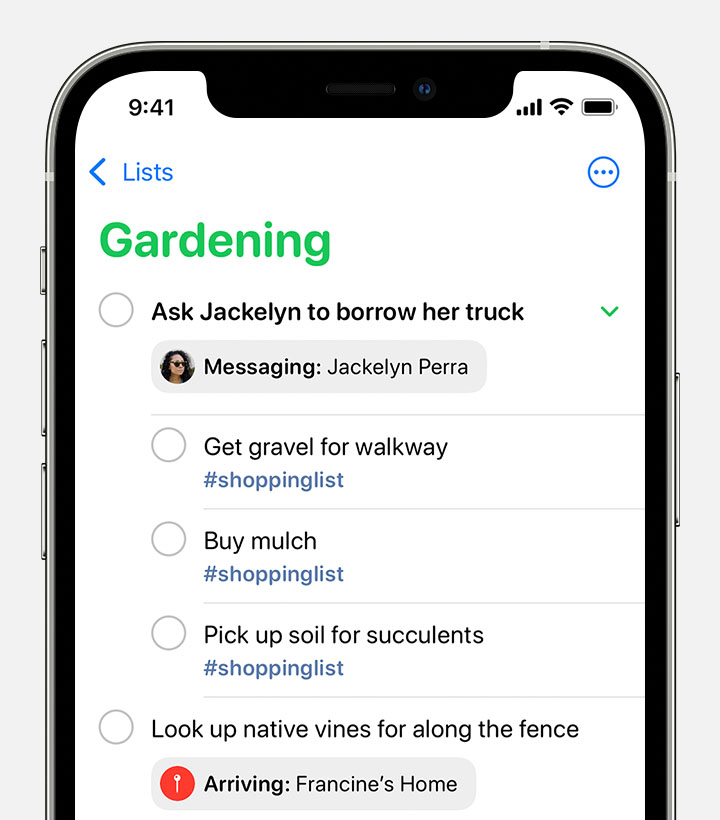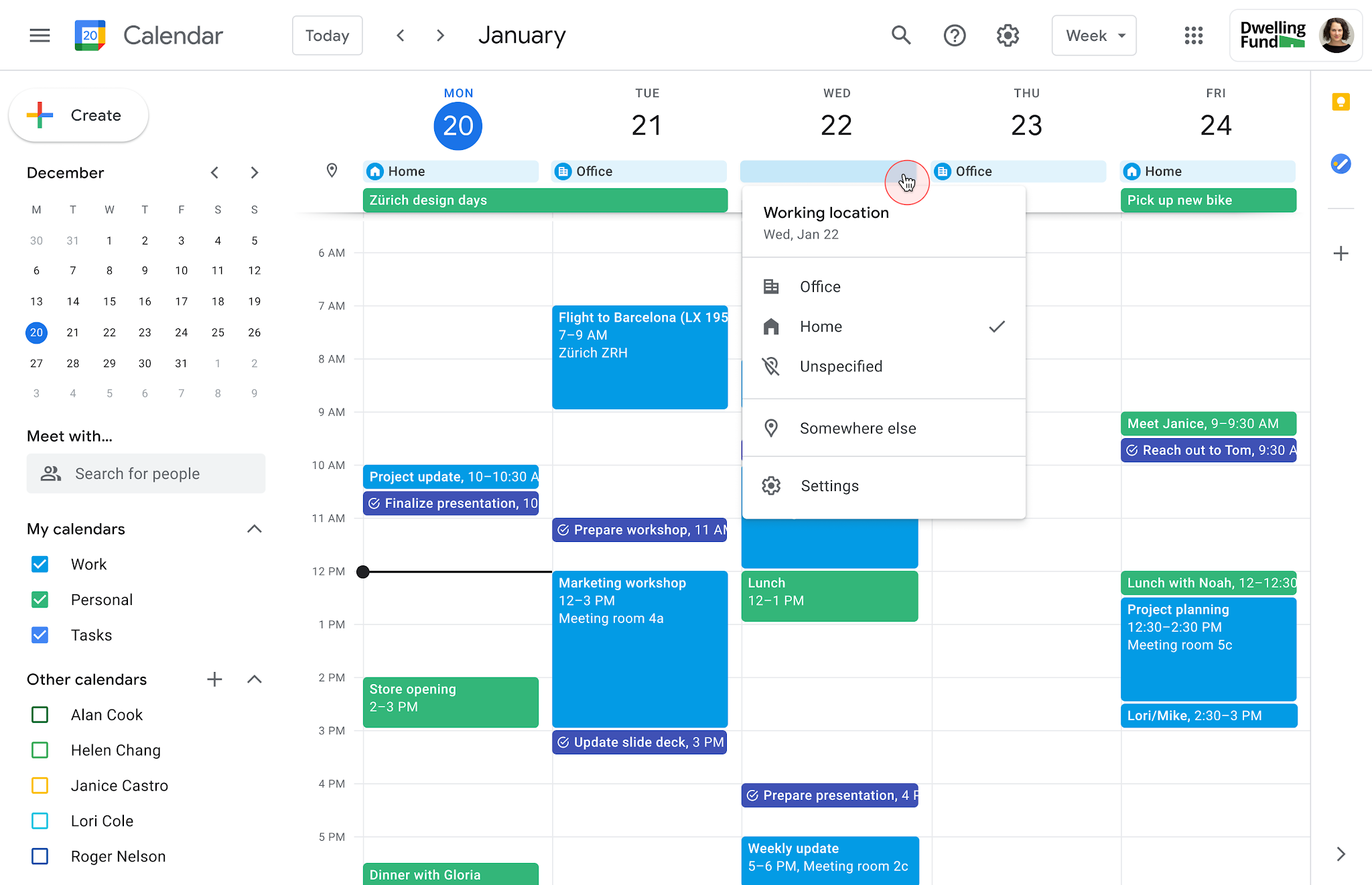Back to all comparisons
Apple Reminders vs Google Calendar
Comprehensive comparison to help you choose the right tool for your needs

Apple Reminders
4.6
Apple Reminders is a free task management app integrated into the Apple ecosystem, offering features like location-based reminders, list sharing, and Siri integration for iOS and macOS users. It's known for its simplicity and ease of use.
Free
Visit Website Google Calendar
4.7
Google Calendar is a free tool for scheduling, with features like event creation, Google service integration, and mobile access
Free to use
Visit Website Quick Summary
Apple Reminders Strengths
- Simple Interface: Apple Reminders offers a clean and intuitive interface, making it easy for users to create and manage tasks.
- Location-based Reminders: Users can set reminders that are triggered by their location, such as reminding to buy something when near a specific store.
- Integration with Siri: The app integrates seamlessly with Siri, allowing users to create reminders through voice commands.
- Shared Lists: It allows sharing of lists with other Apple users, facilitating collaborative task management.
Google Calendar Strengths
- Seamless Integration with Google Services: Google Calendar is tightly integrated with Google's ecosystem, including Gmail for event invitations, Google Meet for video conferencing directly from calendar invites, and Google Tasks for task management. This integration enhances productivity by keeping all tools in one accessible location.
- Easy Event Scheduling and Sharing: The platform enables users to quickly add events, set reminders, and share their calendars with others. This feature is designed to facilitate collaboration and ensure that scheduling meetings or events is a hassle-free process, making it ideal for both personal and professional use.
- Customizable Views and Event Colors: Users can customize their calendar views (day, week, month, or year) and assign colors to different events, making it easier to manage and visually distinguish between various types of appointments or tasks at a glance.
- Recurring Events and Reminders: Google Calendar supports the creation of recurring events and configurable reminders, which can be set to notify users via email or pop-up messages. This ensures that important dates are not missed and helps in establishing routines.
Apple Reminders Screenshot

Google Calendar Screenshot

Feature Comparison
| Feature | Apple Reminders | Google Calendar |
|---|---|---|
| Platforms | Apple Reminders is available for macOS and iOS. It does not have native apps for Android, Web, or Windows. | macOS, iOS, Android, Web |
| Integrations | IFTTT, Shortcuts App, Any.do, BusyCal, Fantastical, and Agenda | ClickUp, Google Tasks, Zoom, Slack, Salesforce, Google Docs |
| Calendar | No | Yes |
| Task Management | Labels, priority settings, due dates, location-based reminders | NA for Calendar |
| Natural Language Processing | No | Yes |
| Analytics | No | No |
| Time Blocking | No | Yes |
| Time Zones | Yes, Apple Reminders supports different Time Zones. | Yes |
| Scheduler | No | Yes |
| Notifications | Yes | Yes |
| Pricing | Free | Free to use |
| Customer Support | Average | Average |
Video Overview
Apple Reminders Video
Google Calendar Video
Apple Reminders Overview
Apple Reminders is a to-do and task management app built into iOS devices, known for its simplicity and ease of use. It allows users to create task lists, set reminders, and share lists with other iOS users. Key features include location-based reminders and widgets for home screen organization. While it's a straightforward and clean app, it's primarily suited for personal use and may lack advanced features required for more complex task management.
Pricing Details
Apple Reminders is a free application provided as part of Apple's suite of apps on iOS and macOS devices. It does not have separate pricing plans. Users can access and use Apple Reminders without any additional cost.
Google Calendar Overview
Google Calendar is free-to-use calendar application that excels in event planning, appointment scheduling, and integrating seamlessly with Google's suite of services including Docs, Meet, and Tasks. It boasts features such as easy event scheduling, comprehensive integration with other Google services, sharing and collaboration tools, mobile access, automatic syncing across devices, customization options, and support for recurring events. Additionally, it offers functionalities like invitations and RSVP tracking, reminders, time management tools, search capabilities, holiday calendars, and weather integration for upcoming events.
Pricing Details
Free to use
Apple Reminders Key Features
Simple Interface: Apple Reminders offers a clean and intuitive interface, making it easy for users to create and manage tasks.
Location-based Reminders: Users can set reminders that are triggered by their location, such as reminding to buy something when near a specific store.
Integration with Siri: The app integrates seamlessly with Siri, allowing users to create reminders through voice commands.
Shared Lists: It allows sharing of lists with other Apple users, facilitating collaborative task management.
Customizable Lists: Users can customize lists with different colors and icons for easy identification and organization.
Attachments and Links: The app supports adding attachments like photos and links to reminders, enhancing the detail and utility of tasks.
Google Calendar Key Features
Seamless Integration with Google Services: Google Calendar is tightly integrated with Google's ecosystem, including Gmail for event invitations, Google Meet for video conferencing directly from calendar invites, and Google Tasks for task management. This integration enhances productivity by keeping all tools in one accessible location.
Easy Event Scheduling and Sharing: The platform enables users to quickly add events, set reminders, and share their calendars with others. This feature is designed to facilitate collaboration and ensure that scheduling meetings or events is a hassle-free process, making it ideal for both personal and professional use.
Customizable Views and Event Colors: Users can customize their calendar views (day, week, month, or year) and assign colors to different events, making it easier to manage and visually distinguish between various types of appointments or tasks at a glance.
Recurring Events and Reminders: Google Calendar supports the creation of recurring events and configurable reminders, which can be set to notify users via email or pop-up messages. This ensures that important dates are not missed and helps in establishing routines.
Mobile Accessibility and Offline Support: With its mobile app, Google Calendar offers the convenience of accessing and managing your schedule on the go. Additionally, offline support means you can view your calendar and receive notifications even without an internet connection.
Time Zone Support and Working Hours: This feature is particularly useful for those working across different time zones, as it automatically adjusts meeting times accordingly. Setting working hours also helps in managing availability, preventing meetings from being scheduled outside of these times.
Conclusion: Which Tool Should You Choose?
Both Apple Reminders and Google Calendar offer unique features and benefits for productivity and workflow management. The best choice depends on your specific needs, team size, and workflow preferences.
Choose Apple Reminders if:
- Simple Interface: Apple Reminders offers a clean and intuitive interface, making it easy for users to create and manage tasks.
- Location-based Reminders: Users can set reminders that are triggered by their location, such as reminding to buy something when near a specific store.
- Integration with Siri: The app integrates seamlessly with Siri, allowing users to create reminders through voice commands.
Choose Google Calendar if:
- Seamless Integration with Google Services: Google Calendar is tightly integrated with Google's ecosystem, including Gmail for event invitations, Google Meet for video conferencing directly from calendar invites, and Google Tasks for task management. This integration enhances productivity by keeping all tools in one accessible location.
- Easy Event Scheduling and Sharing: The platform enables users to quickly add events, set reminders, and share their calendars with others. This feature is designed to facilitate collaboration and ensure that scheduling meetings or events is a hassle-free process, making it ideal for both personal and professional use.
- Customizable Views and Event Colors: Users can customize their calendar views (day, week, month, or year) and assign colors to different events, making it easier to manage and visually distinguish between various types of appointments or tasks at a glance.